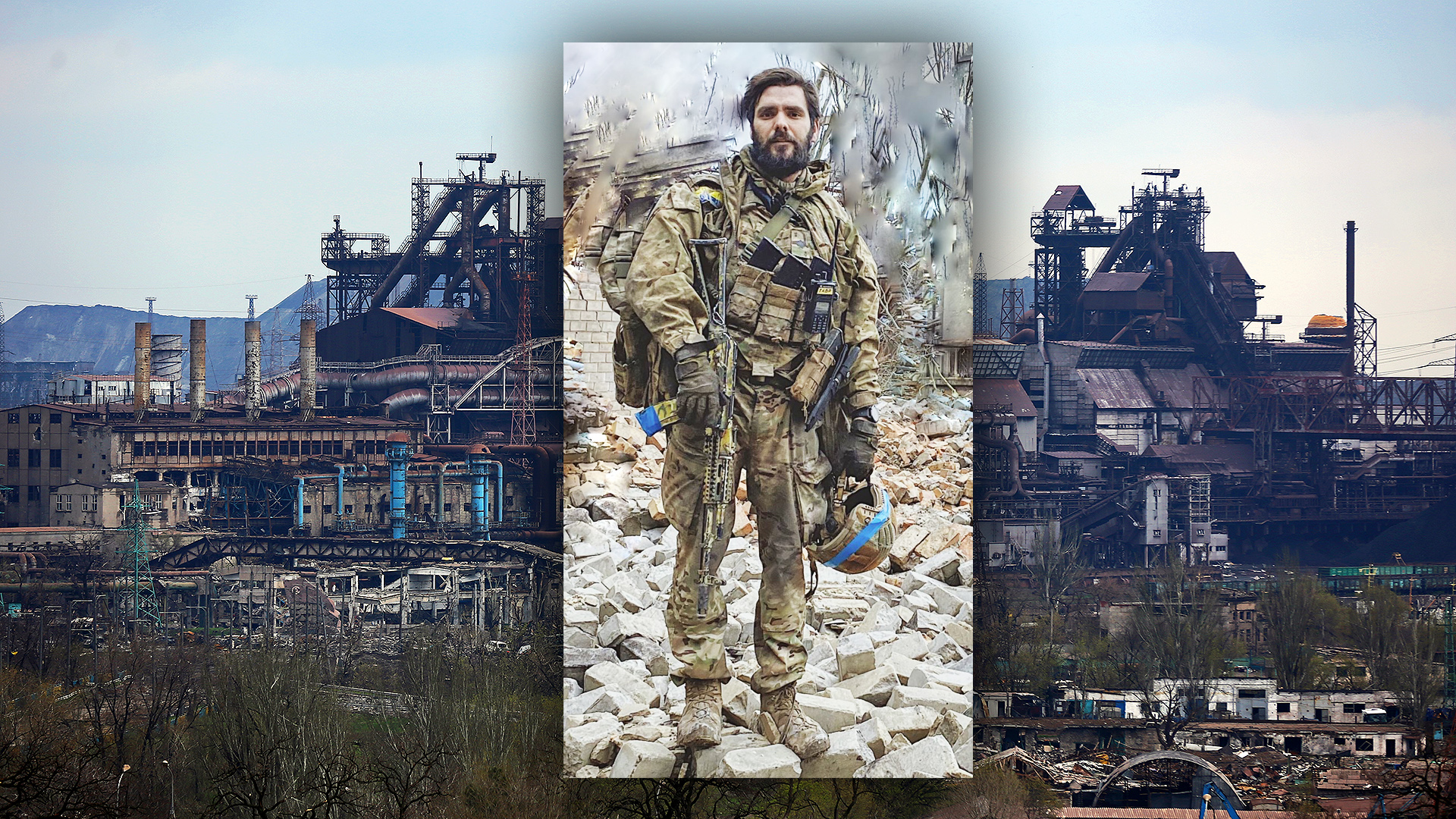After 60 days of unceasing attack by Russian invaders, the defenders of Mariupol are tired. They are hungry. They are vastly outnumbered, under constant bombardment and the dozens of children among them live in constant fear.
But burrowed deeply into the massive Azovstal steel plant surrounded by enemy forces, they have no plans to stop fighting.
“We will never surrender, anytime,” Bohdan Krotevych, a major in the National Guard of Ukraine and chief of staff of the Azov Regiment, told The War Zone in an exclusive interview from inside the steel plant conducted over social media messaging apps.
Friday morning, Ukraine President Volodomyr Zelensky announced, without details, that there were plans to get the civilians out of the plant. But by 10 p.m. Mariupol time, nothing had materialized, Krotevych said.
“So far, no green corridor from Mariupol has existed at all,” said Krotevych, first deputy to Lt. Col. Denis Prokopenko, the commander of the Azov Regiment who leads all the forces defending the city. “I don’t know what will happen next.”
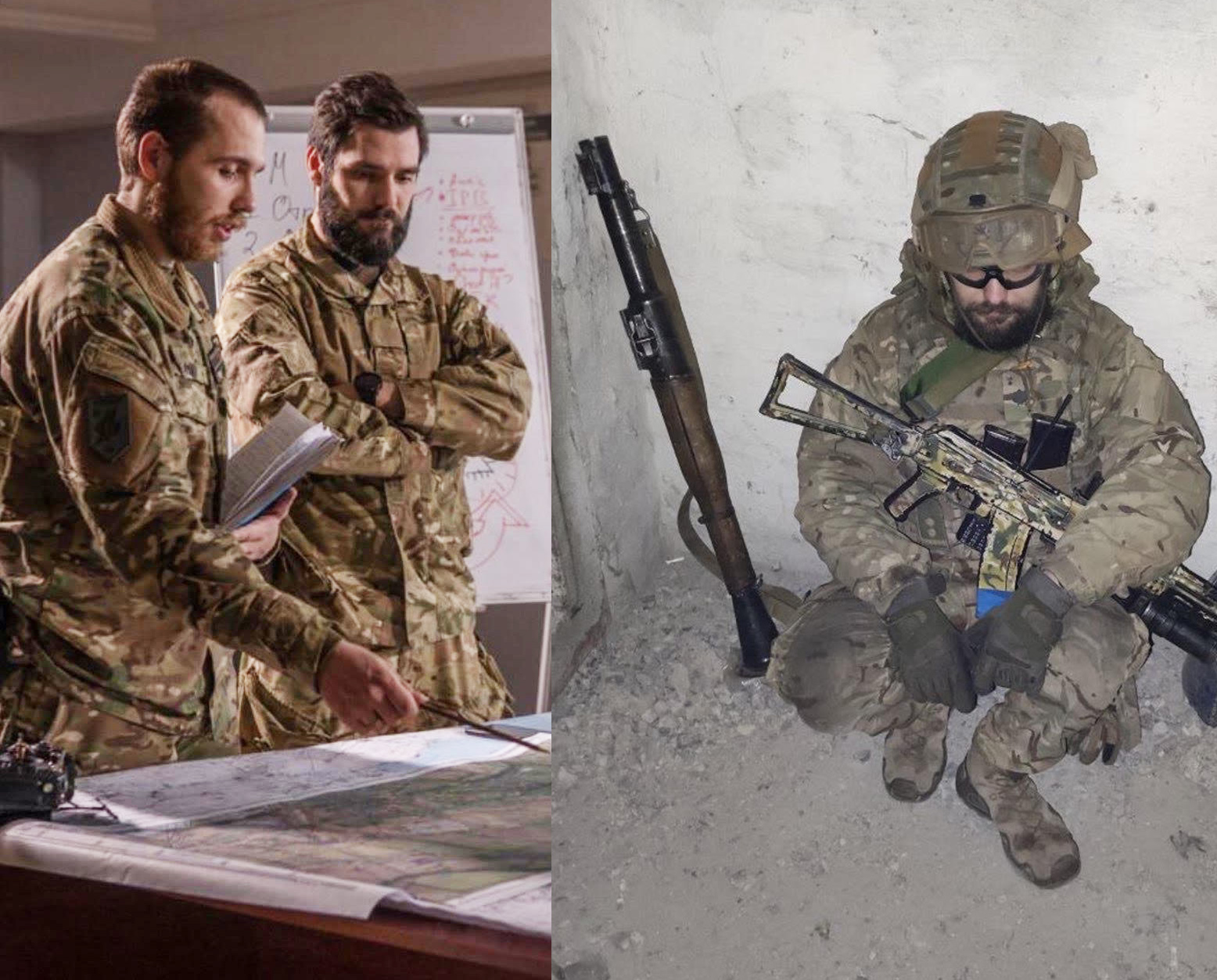
In addition to providing shelter for about 2,000 fighters of the Azov Regiment, Azovstal’s complex warren of underground bunkers also houses about 300 civilians. Among them are some 60 children, ranging in age from four months to 15 years, Krotevych said.
“The civilians cannot even go outside due to constant shelling,” he said. “For example, yesterday an air bomb overturned one such bunker, because we had to dismantle the debris under fire” to find out if there were any survivors.
The Russians, he said, are not only constantly bombing and shelling the plant, but they are firing artillery and armor from as close as 200 meters in some places.
“But they have not yet entered the perimeter of the plant,” he said.
Despite Russian claims, the city of Mariupol, while greatly devastated, has not yet fallen, Krotevych said.
The Russians have “a complete advantage in the sky, and artillery, especially naval artillery, at the moment when all Ukrainian forces are defending the Azovstal plant,” Krotevych said. But it is “important to understand that even in these circumstances, the enemy is lying when he [talks] about full control of the city.”
The Azovstal plant, located in the heart of Mariupol, “is larger than some major European cities,” he said. “From here, we have fire control over the enemy to a depth of 6-8 km. The enemy is still trying to storm, but suffers losses and retreats.”
Meanwhile, “the morale of our fighters is quite high,” said Krotevych. “We know what we are fighting for.”
Krotevych ticks off a list of Russian forces and military equipment he said his forces have destroyed.
They include about 1,200 troops killed, scores of tanks and other armored vehicles destroyed, and even an Su-25 damaged.
But with the chances of relief from the outside virtually impossible due to Russia’s encirclement of the city, and food, water, and ammunition running out, Krotevych realizes the difficulty of the situation. All hope, however, is not lost.
“The lack of logistics in general and the lack of rest for more than two months is too big a problem,” he said. “And although the enemy’s aircraft and artillery are constantly striking, I can firmly assure you that with a serious attempt to assault Azovstal, the enemy will suffer enormous losses in manpower and equipment and will not be able to complete the task. Azovstal is like a fortress with many underground communications and bunkers.”
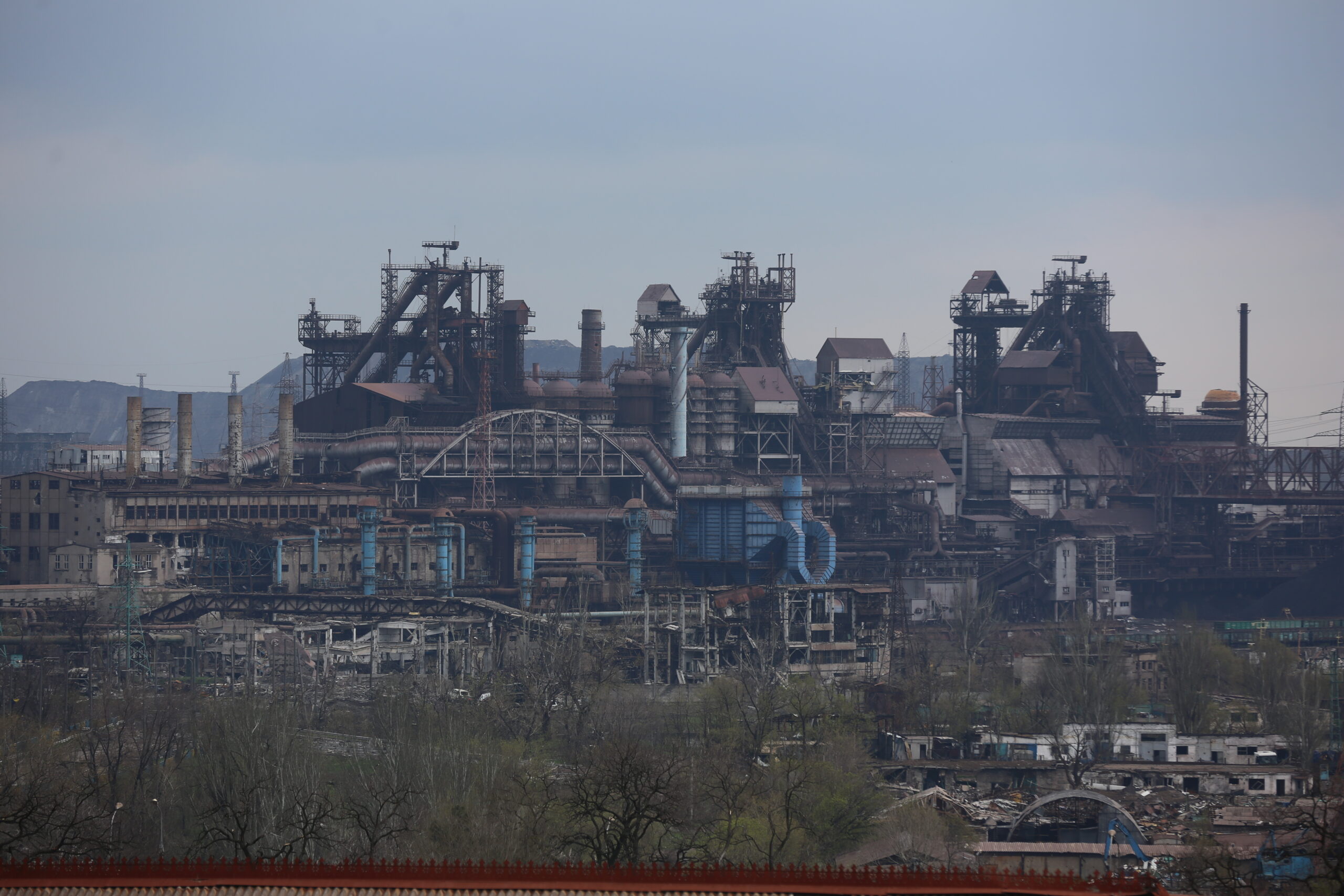
The situation inside the plant “is extremely difficult and tense,” Krotevych said. “Sixty days ago in Mariupol, the enemy cut off electricity, water, gas, Internet and mobile communications completely. We are currently using the military internet.”
The constant Russian bombardment “is an immoral phenomenon that carries no logic from a military point of view,” he said.
The Russians, he said, “always destroy residential neighborhoods. There are many documented facts where they work with aircraft and rocket launchers that volley fire on residential buildings with civilians where our forces are not close.”
Mariupol, once a thriving port city and cultural hub for southern Ukraine, is now a smoking ruin.
“I personally believe that Russian pilots and artillerymen are the scum who killed the largest number of civilians,” Krotevych said. “In general, their tactic is to destroy the entire city to zero, 98 percent of all houses in Mariupol were damaged, 70 percent are destroyed.”
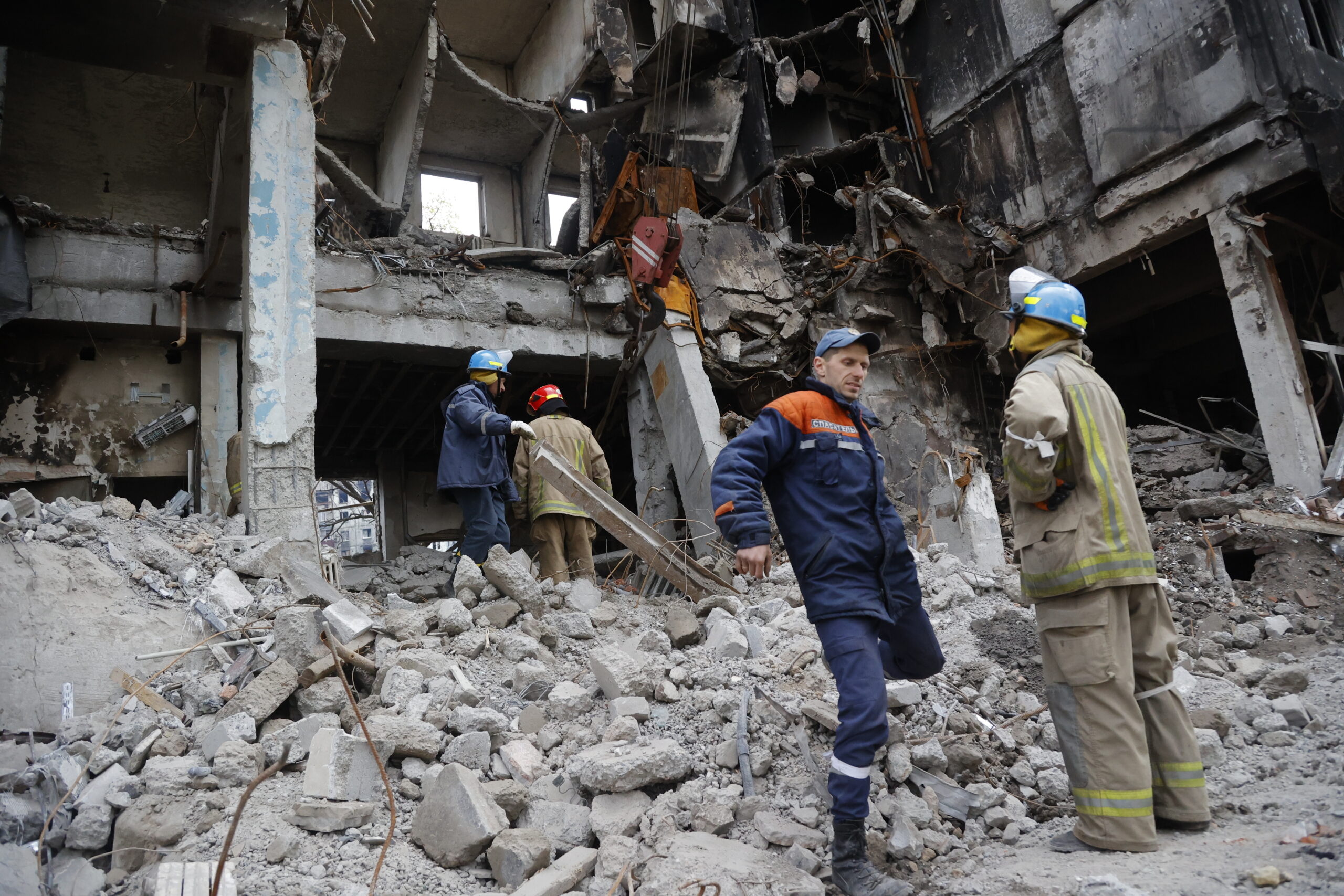
With the enemy so close to the plant, the Azov Regiment has come in contact with Russians, said Krotevych.
“So, of course, we interrogated the prisoners and conducted operations directly on the first positions,” he said. “I will note that it is not necessary to use any ‘violent’ methods for a Russian to hand over all the information – just pour him tea and chocolate – and he will tell everything.”
Krotevych declines to offer specifics about how much longer supplies can hold out.
“Not enough, but we have been fighting for two months in the absence of logistics,” he states.
Nor will he offer many details about how many wounded there are, or the difficulty of treating them.
“I can’t disclose the number,” said Krotevych, “but there are many of them, there are not enough medicines, and it is extremely difficult for the medics and the wounded.”
The defense of Mariupol has been more than just symbolic. The Pentagon has said that as many as 12 Russian battalion tactical groups were tied up trying to wrest control of the city, forces that could be used in their push to take Donbas.
Last week, Russian President Vladimir Putin ordered a halt to the assault on the Azovstal steel plant, calling for a blockade instead, but the fighting continued. Thursday, a senior U.S. defense official said that the Pentagon has observed Russian troops moving out of Mariupol, heading northwest toward Zaporizhzhia Oblast.
“That doesn’t mean that we assess that they have Mariupol,” the official said. “As I’ve said earlier, they are continuing to pound Mariupol with strikes, both airstrikes and missile strikes. You don’t do that if you think it belongs to you.”
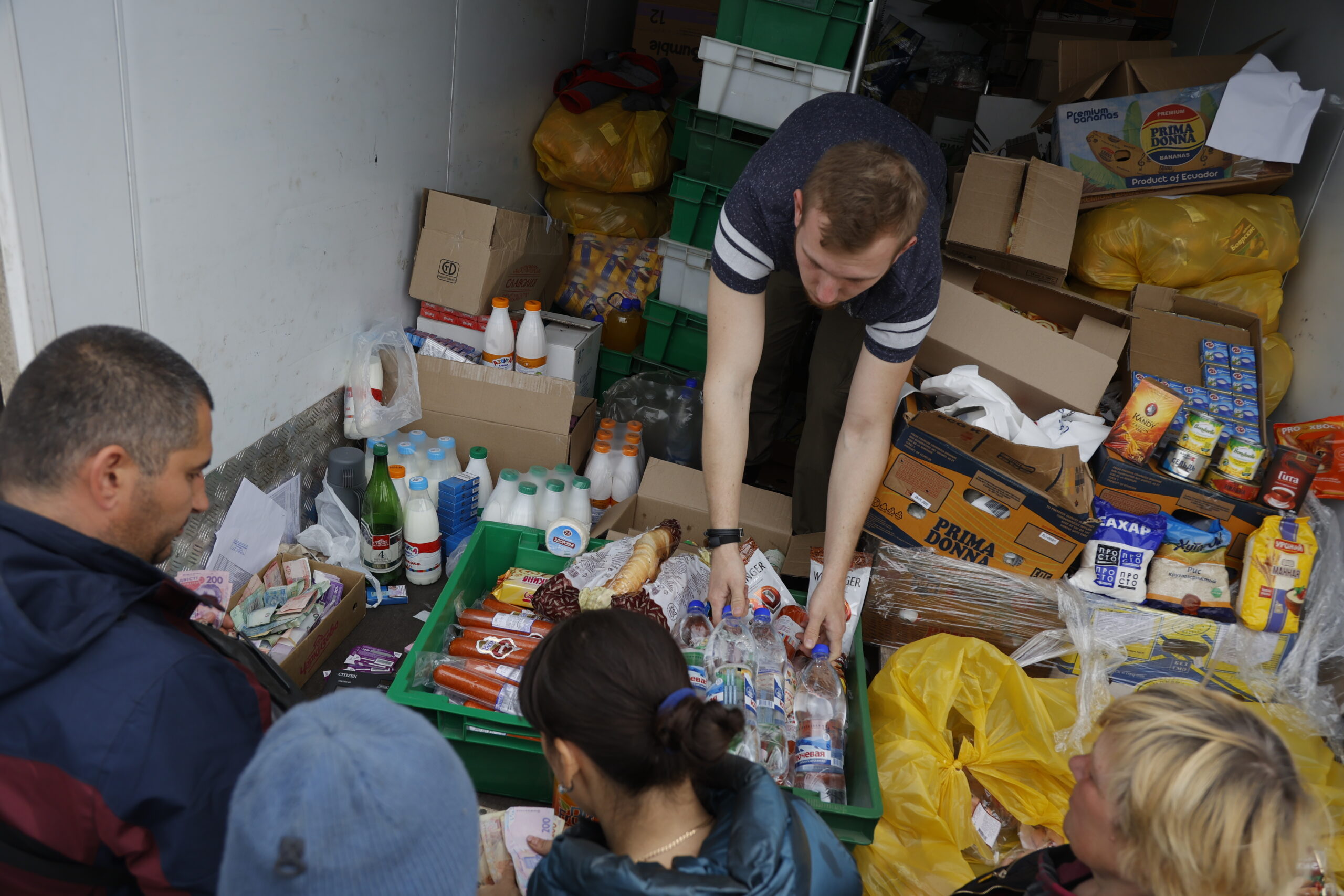
The situation faced by the defenders of Mariupol has few historic precedents, said Krotevych.
“If you give a military example of defense in the environment that is appropriate to compare with our situation, I will be very grateful,” he said. “I thought to compare it with Sevastopol in World War II, but there was a logistical sea corridor to the last. Stalingrad was not surrounded at all, Odesa also had a logistics naval corridor and support for naval artillery. In our case, the Sea of Azov is completely under Russian control. That’s why I say everything depends only on the spirit of our soldiers.”
Krotevych said “the next step is the same as the previous one, to destroy the maximum number of the enemy, to defend. This is the military doctrine of Azov, so to speak.”
As he readies for another dangerous night inside the Azovstal plant, Krotevych waxes philosophical about how much longer the Azov Regiment can hold out.
“Sometimes we are surprised by our endurance,” he said. “This is a very philosophical question, which depends only on the spirit of our soldiers.”
However, he said, “the Azov fighters are ‘gods of war’ and these words are not exaggerated. If you’ve seen videos of fights, you realize that most fierce fights are not documented. However, even what is there is beyond higher professionalism.”
With the eyes of the world watching the defense of Mariupol, Krotevych said he has a message.
“The world must be more determined,” he said.
“A timely decision is always more effective, but a successful decision is made late,” Krotevych mused. “Once too many countries decided for a long time whether to go to war with Nazi Germany, and it cost many lives of all nations.”
“Unfortunately, we see history repeating itself,” he said. “Naivety kills.”
Contact the author: howard@thewarzone.com
